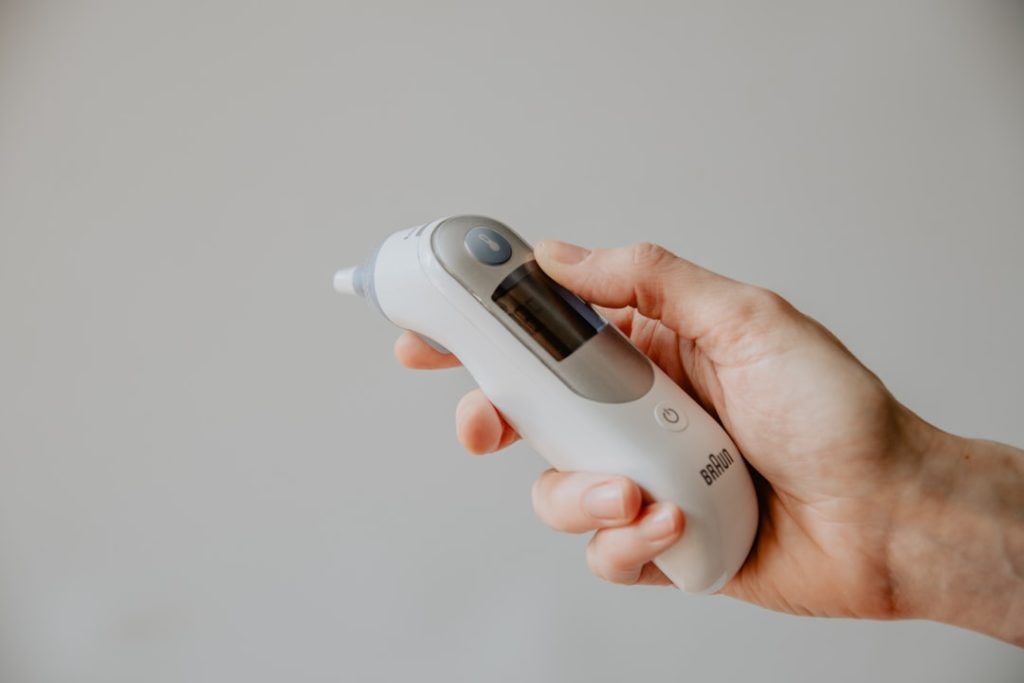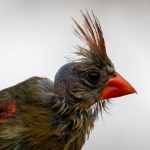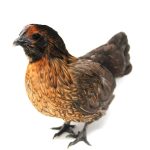Backyard chicken keeping offers numerous benefits, including access to fresh eggs and a closer connection to nature. However, managing chicken health is a crucial aspect of this endeavor. Chickens, like all animals, are vulnerable to various diseases that can affect their well-being and egg production.
Backyard flock owners should familiarize themselves with common chicken ailments, their associated symptoms, preventive strategies, and available treatments. A comprehensive understanding of disease management in poultry enables owners to implement proactive measures, ensuring the health and vitality of their flock. This knowledge is essential for maintaining a successful and sustainable backyard chicken operation.
Table of Contents
- 1 Common Diseases in Backyard Chickens
- 2 Symptoms and Signs of Disease in Chickens
- 3 Prevention and Biosecurity Measures for Disease in Backyard Chickens
- 4 Treatment and Management of Disease in Chickens
- 5 Importance of Regular Health Checks for Backyard Chickens
- 6 Conclusion and Summary of Key Points for Disease Management in Backyard Chickens
- 7 FAQs
Key Takeaways
- Disease in chickens can have a significant impact on backyard flocks, leading to decreased egg production, poor growth, and even death.
- Common diseases in backyard chickens include respiratory infections, coccidiosis, and Marek’s disease, among others.
- Symptoms of disease in chickens can include lethargy, decreased appetite, respiratory distress, and changes in droppings.
- Prevention measures such as biosecurity, vaccination, and proper sanitation are crucial for maintaining a healthy flock.
- Prompt treatment and management of diseases, along with regular health checks, are essential for maintaining the health and productivity of backyard chickens.
Common Diseases in Backyard Chickens
Respiratory infections, such as infectious bronchitis and Newcastle disease, can cause symptoms like coughing, sneezing, and nasal discharge in backyard chickens. Marek’s disease, a viral illness, can lead to tumors, paralysis, and vision impairment in affected chickens.
Intestinal Parasites and Coccidiosis
Coccidiosis is a parasitic disease that affects the intestinal tract of chickens, resulting in symptoms like diarrhea, weight loss, and decreased egg production. Internal parasites like worms can also cause discomfort and health issues for chickens.
External Parasites and Biosecurity Measures
Backyard chickens are also at risk of external parasites like mites and lice, which can cause discomfort and health problems. To prevent and manage these issues, owners must be vigilant about monitoring and treating for parasites. By understanding the common diseases and parasites that can affect backyard chickens, owners can be proactive in implementing biosecurity measures and seeking veterinary care when necessary.
Symptoms and Signs of Disease in Chickens
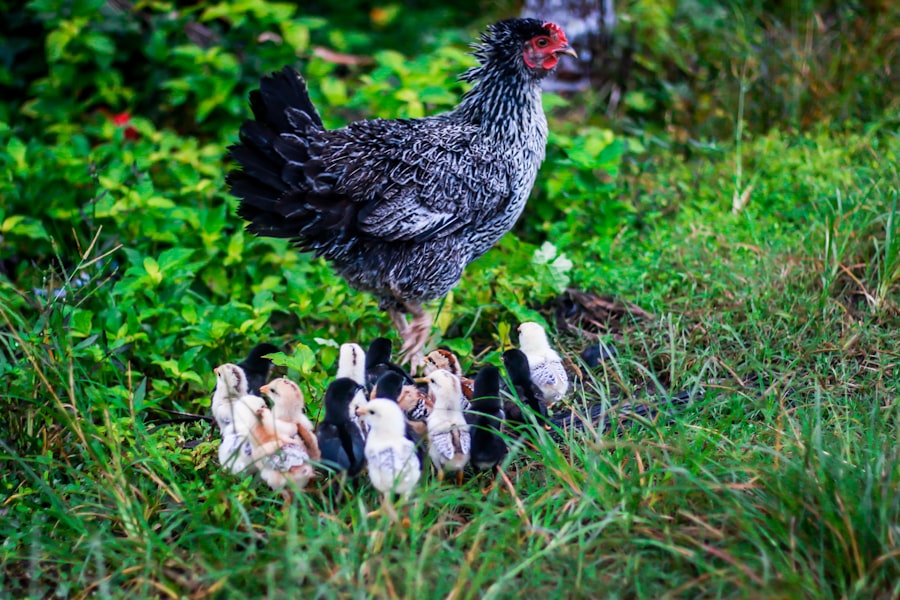
Recognizing the symptoms and signs of disease in chickens is crucial for early intervention and effective management. Some common signs of illness in chickens include changes in behavior, such as lethargy or decreased activity, as well as changes in appearance, such as ruffled feathers or weight loss. Respiratory symptoms like coughing, sneezing, and nasal discharge can indicate a potential respiratory infection, while diarrhea and decreased egg production may point to coccidiosis or other intestinal issues.
Additionally, visible signs of parasites, such as mites or lice on the skin or worms in droppings, should not be overlooked. It is important for backyard chicken owners to regularly observe their flock for any changes in behavior or appearance that could indicate illness. By being attentive to these signs, owners can promptly seek veterinary care and implement appropriate treatment measures to address the underlying health issues.
Early detection and intervention are key to preventing the spread of disease within the flock and minimizing the impact on overall chicken health.
Prevention and Biosecurity Measures for Disease in Backyard Chickens
Preventing disease in backyard chickens starts with implementing strong biosecurity measures. This includes maintaining a clean and sanitary coop environment, providing access to fresh water and nutritious feed, and practicing good hygiene when handling chickens. Regularly cleaning and disinfecting the coop, as well as removing any standing water or sources of contamination, can help reduce the risk of disease transmission.
Additionally, limiting exposure to wild birds and other potential carriers of disease can help minimize the risk of infection. In addition to biosecurity measures within the coop, it is important for backyard chicken owners to practice good quarantine protocols when introducing new birds to the flock. New chickens should be kept separate from the existing flock for a period of time to monitor for any signs of illness before integrating them fully.
This can help prevent the introduction of new diseases into the existing flock and protect the overall health of the chickens.
Treatment and Management of Disease in Chickens
When disease does occur in backyard chickens, prompt treatment and management are essential for minimizing the impact on the flock. Depending on the specific illness, treatment options may include medications, supportive care, and isolation of affected birds. For respiratory infections, antibiotics or antiviral medications may be prescribed by a veterinarian to help control the spread of illness within the flock.
For parasitic infections, treatments like topical medications or dewormers may be recommended to eliminate pests and restore chicken health. In addition to specific treatments for individual illnesses, it is important for backyard chicken owners to provide supportive care for sick birds. This may include ensuring access to clean water and nutritious feed, as well as providing a comfortable and stress-free environment for recovery.
Isolating sick birds from the rest of the flock can also help prevent the spread of disease and allow for focused care and monitoring.
Importance of Regular Health Checks for Backyard Chickens
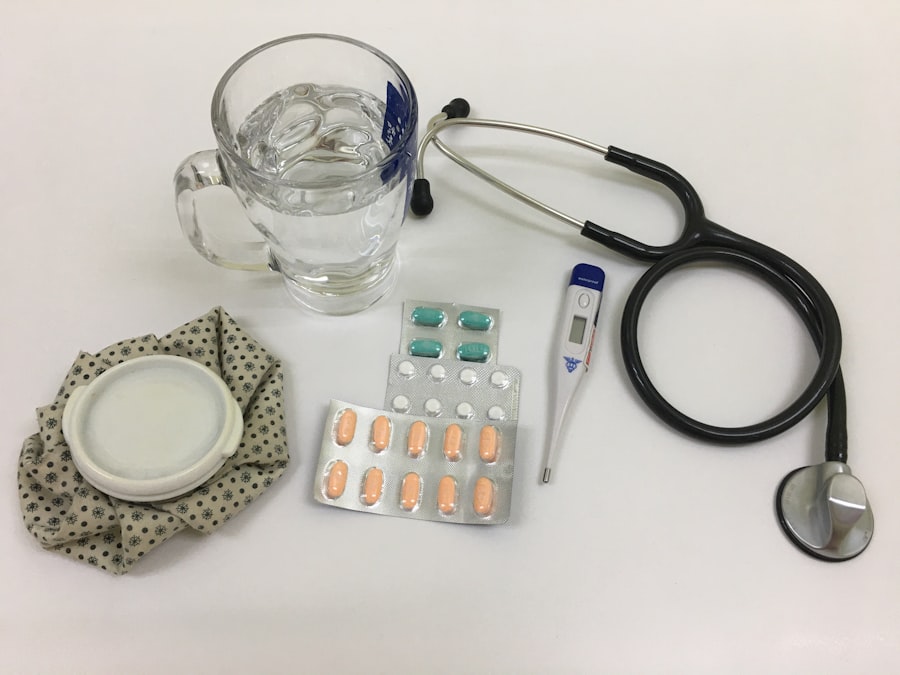
Regular health checks are an important aspect of disease management in backyard chickens. By routinely monitoring the overall health and well-being of the flock, owners can identify any potential issues early on and take proactive steps to address them. This may include observing behavior and appearance, checking for signs of parasites, and monitoring egg production and quality.
In addition to regular visual checks, it is also beneficial for backyard chicken owners to establish a relationship with a poultry veterinarian who can provide guidance on preventative care and treatment options. A veterinarian can perform routine health assessments, provide vaccinations when necessary, and offer advice on nutrition and environmental management to support optimal chicken health.
Conclusion and Summary of Key Points for Disease Management in Backyard Chickens
In conclusion, disease management is an important aspect of raising healthy backyard chickens. By understanding the common diseases that can affect chickens, recognizing the symptoms and signs of illness, implementing strong biosecurity measures, seeking prompt treatment when necessary, and conducting regular health checks, owners can take proactive steps to protect their flock from disease. With proper care and attention to preventative measures, backyard chicken owners can help ensure the health and well-being of their feathered friends for years to come.
If you’re considering keeping chickens in your yard, it’s important to be aware of the potential diseases that can affect them. According to a recent article on PoultryWizard, it’s crucial to provide proper care and hygiene to prevent diseases such as avian influenza and Newcastle disease. The article also discusses the importance of regular health checks and vaccinations for your flock. For more information on how to care for your chickens and prevent disease, check out the article here.
FAQs
What are some common diseases that can affect chickens kept in a yard?
Some common diseases that can affect chickens kept in a yard include Marek’s disease, coccidiosis, infectious bronchitis, Newcastle disease, and avian influenza.
How can I prevent diseases in my yard chickens?
To prevent diseases in yard chickens, it is important to practice good biosecurity measures, provide a clean and dry living environment, maintain a balanced diet, and regularly monitor the health of the chickens.
What are the symptoms of disease in chickens?
Symptoms of disease in chickens can include decreased egg production, respiratory issues, diarrhea, lethargy, weight loss, and changes in behavior or appearance.
Can diseases in yard chickens affect humans?
Some diseases that affect chickens can also affect humans, such as avian influenza. It is important to practice good hygiene and take precautions when handling sick chickens.
Should I vaccinate my yard chickens against diseases?
Vaccinating yard chickens against common diseases such as Marek’s disease and Newcastle disease can help prevent outbreaks and protect the overall health of the flock. It is recommended to consult with a veterinarian for a vaccination schedule.
Meet Walter, the feathered-friend fanatic of Florida! Nestled in the sunshine state, Walter struts through life with his feathered companions, clucking his way to happiness. With a coop that’s fancier than a five-star hotel, he’s the Don Juan of the chicken world. When he’s not teaching his hens to do the cha-cha, you’ll find him in a heated debate with his prized rooster, Sir Clucks-a-Lot. Walter’s poultry passion is no yolk; he’s the sunny-side-up guy you never knew you needed in your flock of friends!

